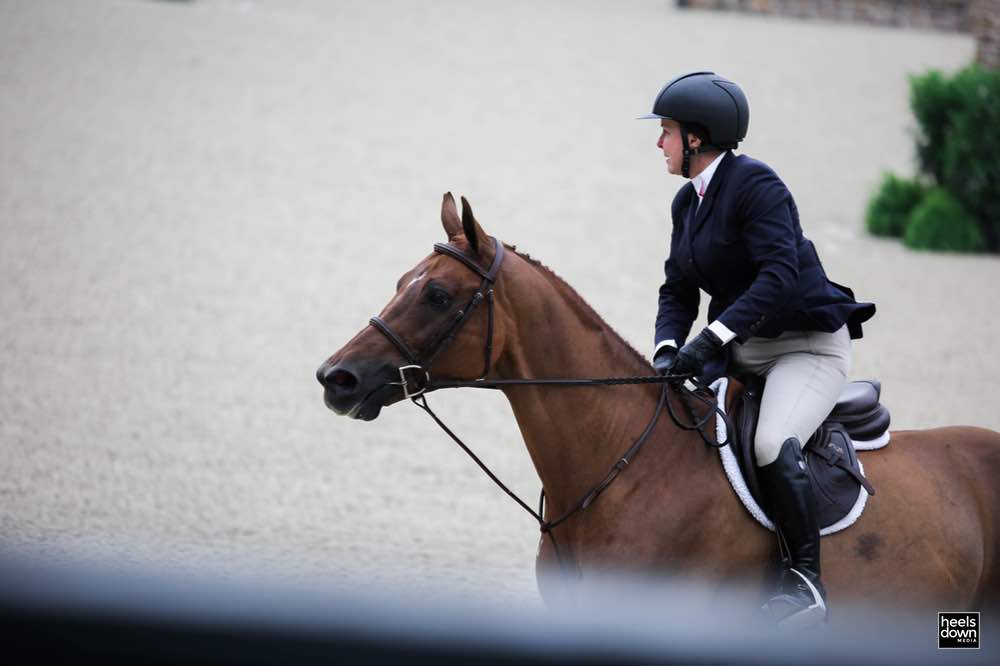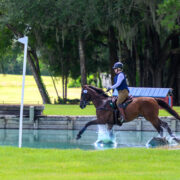Your Horse Isn’t ‘Broke’. He’s Trained.

Over the weekend, I was excited to watch and learn from three top-level dressage professionals at the Ecogold Dressage Symposium.
Canadian two-time Olympian, Jacquie Brooks kicked off the the day of intense conversations about biomechanics, rideability, and more. But I was immediately struck by something she said right off the bat.
“I’m hoping we as a sport can get away from this kind of language of ‘kick him harder,’ or ‘rattle the bit in his mouth,’” Jacquie explained.
She brought this up because she feels like the language we use affects the seriousness of our sport. Dressage, specifically, is a technical sport. We should use terms that reflect as much. Because at the end of the day, our intent isn’t to “kick the horse harder” in order to perform the movement we want – it’s to properly reinforce the aids so the horse understands what is being asked of him.
As a self-described “word person” I took this to heart. I thought about it long after the three-hour virtual symposium ended. It made me think of other instances involving language and horses.
A few weeks ago, somebody posted a video online of their horse cantering along. The poster was looking for advice on getting the horse to pick up the left lead, but a few commenters were too consumed with the language she used to offer any advice. She’d described the horse as “broke” – which certainly isn’t an uncommon term among horse people.
But several jumped in, “Your horse isn’t broke if you’re riding it. He’s started.” Others shared the hashtag #startednotbroken, a testament to the training of the legendary horseman, Monty Roberts. And it’s true – we don’t “break” horses of their spirit when we begin to train them, as the word sometimes implies. We merely begin to train them.
Weeks ago, I was lucky to interview Sarah Maslin Nir, the New York Times reporter and author of the novel, “Horse Crazy”. During our lengthy conversation about being word and horse people, she politely corrected me once, when I referred to her as a “horseman”. She said she was in fact, a horsewoman, and that we should use the term more often and not the blanket “man” for everyone.
She’s not wrong.
Language, in this day and age, is so important. The intent of our words can swing wildly from one end to the other, depending on how someone reads and infers it. Especially in the year 2020, where emotions are high and people are so quick to jump to one side or another, based on shallow arguments made on social media channels.
But when it comes to horses, I hope we can agree that clear, direct language is the best course of action. As a person who identifies as a woman and who has ridden horses all my life, I am a horsewoman, not a horseman. Being a horsewoman does not make me lesser than any horseman. I gently start horses for riding work, I do not set out or intend to break them. And I do not kick my horse to make him go faster, nor do I pull on his mouth to get him on the bit. I ask him with my aids, sometimes more strongly than others, to respond to the cues I present to him.
If we all take a moment to consider the language we use, we can make a difference.


